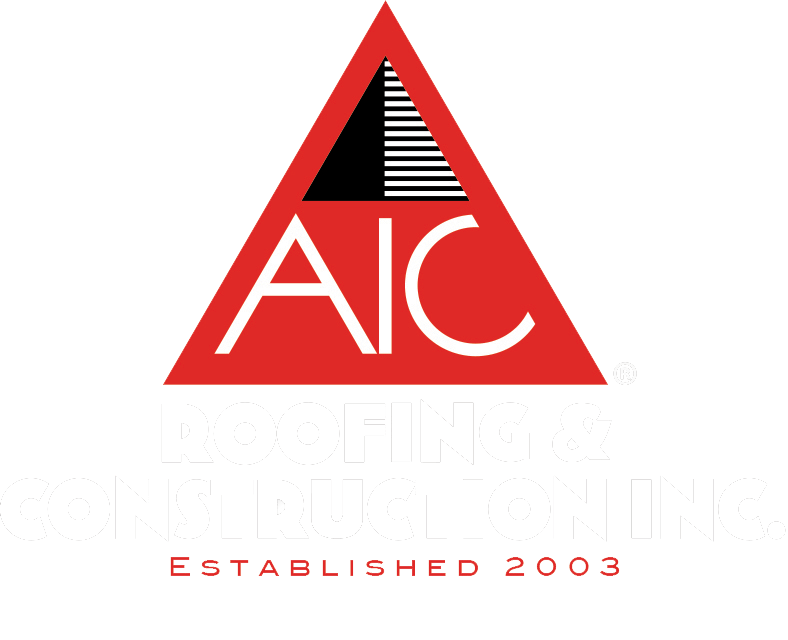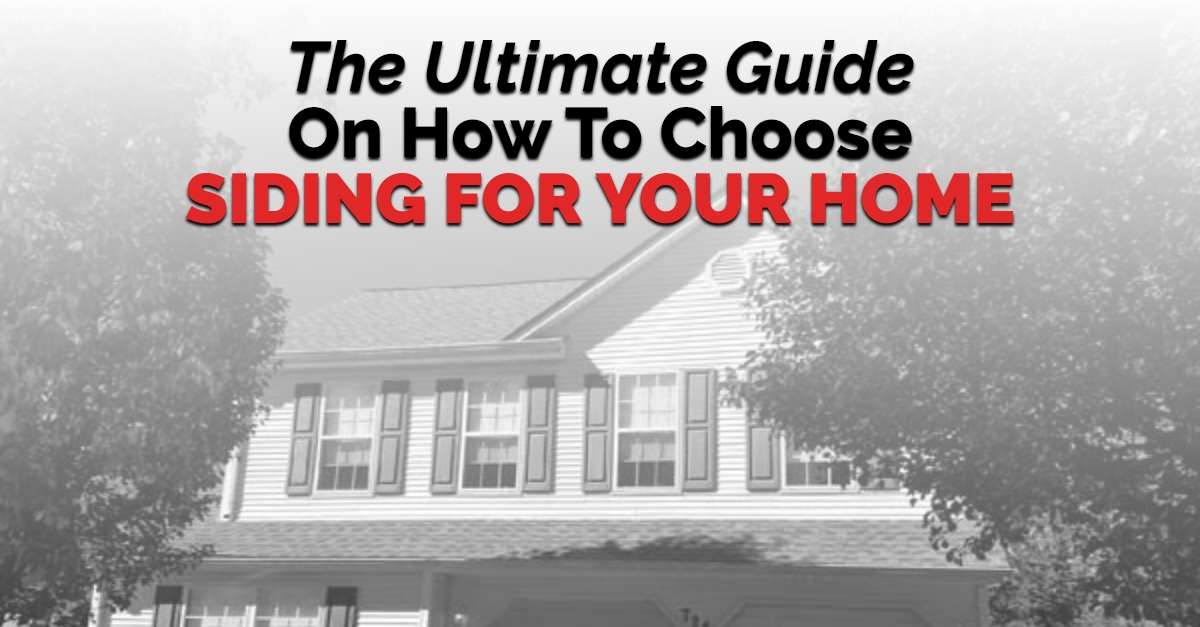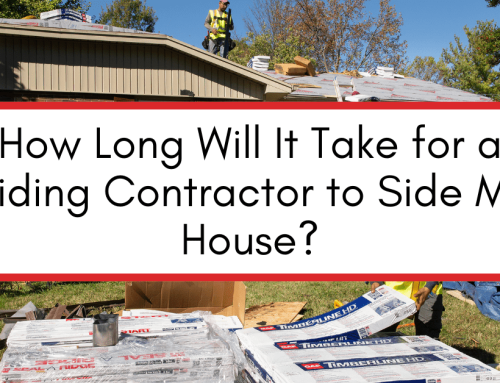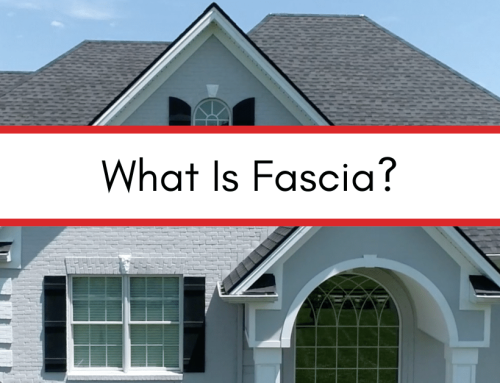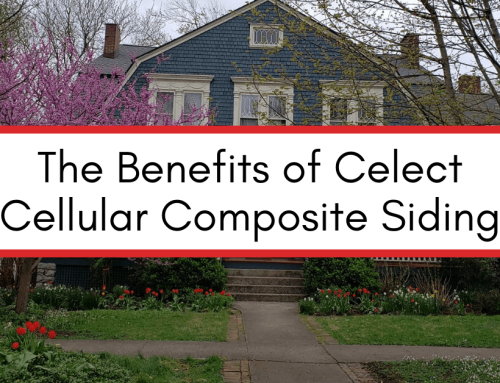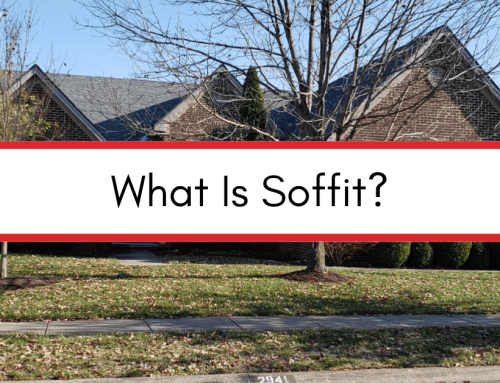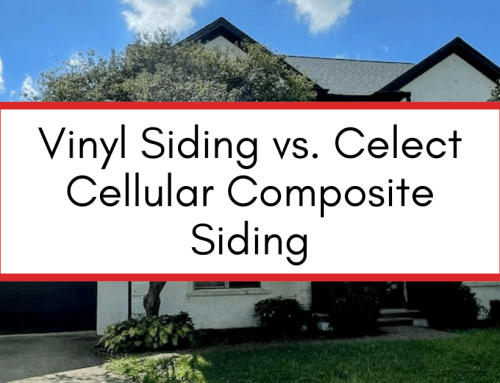New siding is one of the few home improvements which increases your home’s efficiency, curb appeal, and value. Yet, replacing your siding can be costly. It’s essential to give careful thought to the type and style of your new siding. As we’ve heard from many customers, the process can seem overwhelming with so many options to choose from.
To help you sort through the different options, we’ve rounded up some popular types of siding and the critical information about them.
Below, we’ll rate each siding option on 5 criteria:
- Cost
- Curb Appeal
- Maintenance
- Pros
- Cons
By the end of this article, you should feel more knowledgeable about many types of siding to make an informed decision for your Central Kentucky home.
Vinyl Siding
- Cost: Low
- Maintenance: Average
- Curb Appeal: Vinyl siding can be installed vertically or horizontally. Vinyl siding comes in a wide variety of colors and can be painted if you change your mind. Note, if vinyl siding is painted, maintenance will depend on the quality of the paint.
- Pros: Vinyl siding is lightweight and may be put on top of any existing surface, including brick or stucco. Vinyl siding is also the most economical choice of siding.
- Cons: Vinyl siding can be easily dented or misshapen from hail or other blunt forces. The biggest downside with Vinyl siding is its susceptibility to become permanently misshapen from changing temperatures. The vinyl will expand and contract when temperatures change from hot to cold (as they do here in Kentucky!). Contractions can cause cracks and gaps in the siding, exposing your home to the elements. If a crack does occur, the panel can be replaced (hence the higher maintenance rating).
- Recommend Manufacturer: Royal
Insulated Vinyl
- Cost: Average
- Maintenance: Low
- Curb Appeal: Insulated Vinyl siding can be installed vertically or horizontally. Like vinyl siding, it comes in a wide variety of colors and can be painted. Insulated vinyl siding has a more pronounced and sturdier look than plain vinyl siding.
- Pros: Insulated vinyl has insulation built directly into the ridge of the panel. This improves your home’s energy efficiency and makes the siding more durable. Insulated vinyl is more impact resistant than standard vinyl, and the insulation is treated with a mild insecticide.
- Cons: Insulated vinyl siding requires more intensive and skilled labor for installation to ensure panels are correctly sealed. Additionally, extremely high moisture areas should be monitored for mold.
- Recommend Manufacturer: Mastic
Fiber Cement (James Hardie) Siding
- Cost: High
- Maintenance: Extremely low. Impervious to termites, woodpeckers, and other pests. Color lasts longer than any other siding option.
- Curb Appeal: Fiber Cement siding has richer, more realistic wood-like finishes than vinyl siding. Further, the color technology with fiber cement siding prevents chipping, cracking, and fading much longer than any other siding option.
- Pros: If you are a long-term homeowner, investing in fiber cement siding will ensure your siding is long-lasting and offers the most in curb appeal and the least in maintenance. The siding is resistant to water damage and rot and can withstand any climate with warping or cracking. Fiber cement siding is incredibly durable and can easily last 40-50 years.
- Cons: Costly. Not meant for quick, inexpensive fixes.
- Recommend Manufacturer: James Hardie. In our humble opinion, James Hardie fiber cement siding is the best fiber cement siding on the market. There are other brands, but we only install James Hardie fiber cement siding because we feel strongly about the quality and manufacturer’s processes.
Cellular Composite
- Cost: High
- Maintenance: Extremely low. This is the lowest maintenance siding option. The siding has patented interlocking joints built to resist mold, mildew, and insects without ever needing to be repainted or re-caulked.
- Curb Appeal: Cellular Composite siding offers the look of natural wood without any of the upkeep. It comes in various colors and styles (such as shake or board and batten).
- Pros: Cellular composite siding, a fairly new innovation, offers the most aesthetics, durability, energy efficiency, and virtually no maintenance. Manufacturers like Celect are so confident in the product’s longevity that they offer a 25-year warranty on the finish! Meaning if it fades or cracks, you’re covered. Cellular Composite also has the best R-value (this is a rating for energy efficiency). Its R-value is nearly double that of wood or fiber cement siding.
- Cons: Similar to James Hardie, Cellular Composite is expensive and is not meant for a quick fix. If you plan to live in your home for many years, Cellular Composite may be the choice for you. Then you can reap the benefits of lower energy bills and enjoy the benefits of maintenance-free siding
- Recommend Manufacturer: Celect
Making Your Decision
Choosing a new siding for your home can be difficult. Regardless of which type and color you choose, hire a qualified and experienced siding installer. Remember, replacing your siding has an excellent return on investment (return on investments average at 70% – premium options are even higher!) and can help you avoid costly maintenance expenses in the long run. We hope this article helped give you more information to help you make the best decision for your Central Kentucky home. Connect with us to schedule your siding consultation with AIC Roofing & Construction!
3-tab attics barns chimney choosing a contractor commercial cost curb appeal DIY estimate financing flashing flat roof GAF glossary gutter replacement gutters gutter size gutter system ice dams inspections insurance missing shingles roof design roofing materials roofing system roof leak roof maintenance roof materials roof repair roof replacement roof shapes roof types shingle ratings shingles siding siding materials siding replacement skylights storm damage underlayment ventilation warranty winter
